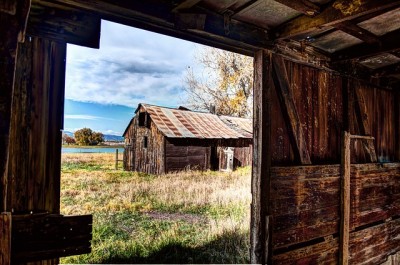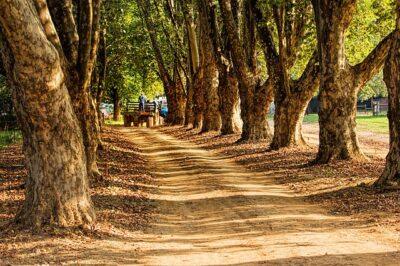Without a doubt, the main things people think of when considering buying rural land for an off-grid property are size, location and cost.
But there are several other steps and factors you’ll need to consider to ascertain if the area is viable for living in and farming, especially in the long term. Going through these guidelines will help you make a better assessment, and spare you from potential problems ahead — especially if you’ve been a city-slicker all your life and are only now transitioning into country living. This list is by no means exhaustive, but it may include items you may not have thought of.
1. Soil condition. Is the soil arable? Too rocky? Too sandy? Clay-like? Contaminated with chemicals from fertilizers used by previous owners? These factors, along with soil acidity and pH, would determine the level of success and challenges you’ll have in growing your food. I would recommend getting a soil test done, and doing so on the specific areas you’re planning a garden.
2. Safety from hazards — natural and man-made. You may wish to steer clear of known earthquake faults, nuclear plants, tornado belts, flood plains, drought-prone areas, and low-lying coastal villages (at risk of hurricanes and tsunamis).
3. Water source. This could be a stream, an underground spring, an existing well shaft or a small creek or pond. An uphill spring is perfect, so you could do a gravity-fed water catchment system. If you’re looking to drill a well, ask the neighbors how deep they were able to tap their well.
These Solar Backup Generators Deliver 4 Times More Power Than Other Models!
Check the water quality, and how land is — and was — used in the surrounding area, not just yours. Is or was there a commercial orchard in the distance? A mining operation? A feedlot? A factory? You don’t want any of their wastes or chemical run-off in your groundwater. Find out about water rights, too. Some states don’t even allow residents to collect rainwater right from their own roof gutters.
4. Accessibility of goods and services. Depending on your and your family’s needs, you’ll need to consider the distance and time it would take for you to get to the nearest town for supplies and hard-to-find service – for anything from automotive repair to computer parts. Probably a few non-negotiables for many folks are a hospital, trauma center, fire station or any kind of emergency response. That would be very important if you or a family member have a medical condition that could need urgent care.
5. Zoning and building restrictions. Look at land use regulations, covenants and homeowners association rules. Can residents build or dig any structure they want — a straw bale house, a tree house, a pond, some cabins to rent out? Some neighborhoods set a limit on what kind and number of livestock homeowners can keep. While some counties have strict laws, others, especially those in the most remote locations, have virtually none. And not having them could be just as bad. What if the neighbors opened a huge poultry or hog operation in the distance and the smell and the flies start sweeping over to you? If peace and privacy are critical for you, go for residential and strictly non-commercial zones, as you wouldn’t want enterprises, big or small, building structures near you – from even a small, seemingly passive thing as a cell phone tower, to an all-out, invasive industrial park. Are you near a forest reserve or property owned by the government? Make sure property lines are clear and yours is a good distance from them. Look out for companies that do fracking, timber harvesting or mining of any sort. You don’t know if they’d be looking to encroach in your area in the future.
6. Woods. The benefits of having or living near wooded areas are endless: privacy and concealment, a buffer from dust and strong winds, and availability of timber and firewood. The natural habitat would also mean edible wildlife for you and your family.
New Survival Energy Product Makes Every Window A Powerful Solar Charger
Aside from hunting and foraging, the woods could also mean hours of recreation: exploring, trail running, camping and swimming if there’s a nearby pond or river. If you’re purchasing wooded land, find out exactly if you’d be allowed to cut — and how much.
7. Clearing. On the other hand, if you’re going to do some serious homesteading, you’ll need sunny, open spaces for gardening and livestock grazing. Don’t forget areas needed for barns and animal pens, an extra storage shed, garage or workshop, and a compost pile. Budget permitting, you might also consider building a greenhouse and potting shed. Off-grid energy installations like solar panels and wind turbines might also require specific locations besides your roof. And, if you decide to use a compost toilet instead of a septic, look for the most strategic location for an outhouse.
8. Communications. Unless you’re ready to totally unplug and live without phone or Internet connection, check the availability of telecom services. Check cell phone signals in different areas of the property. Not only would you want to remain connected to loved ones and the rest of the world, you might also consider working online by selling goods and services. Find out if there’s more than one service provider, so there’s an alternative if you’re not happy with one.
9. Like-minded neighbors. Whether they be somewhat similar to you in the area of self-sufficiency, farming practices, political views or faith, living next to people who share the same values will make life a lot easier for you. Neighbors can be an important asset and even a resource when living off the grid. They can come to your aid in an emergency, they can share valuable knowledge and skills in all things faming, they can lend tools and equipment you don’t yet have; and they can provide good-old company when things get lonely.
What would you add to our list? Share your suggestions in the section below:
Are You Ready For Blackouts When The Grid Goes Down? Read More Here.
 Off The Grid News Better Ideas For Off The Grid Living
Off The Grid News Better Ideas For Off The Grid Living





